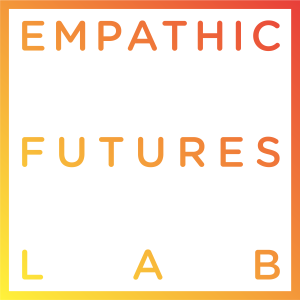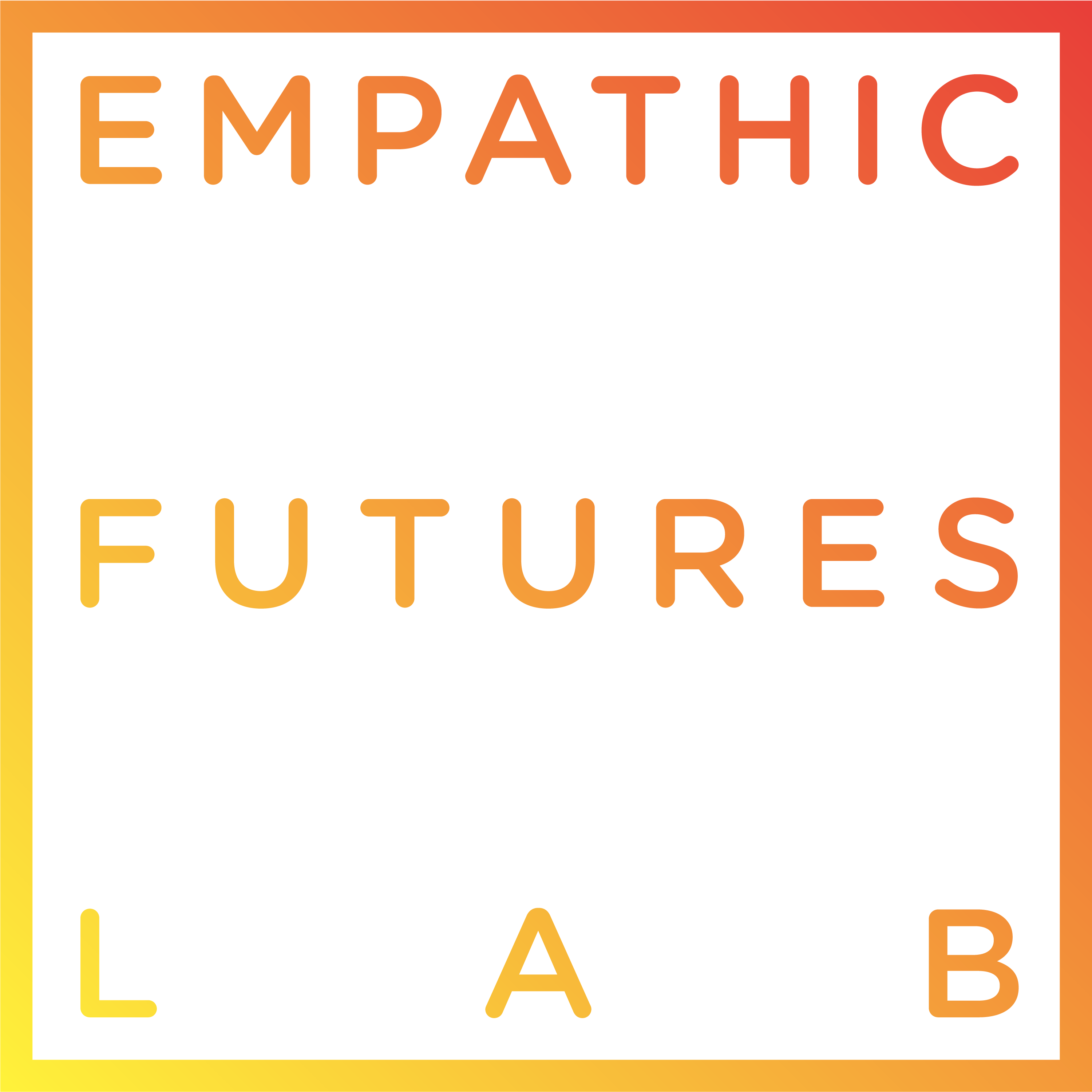Episodes

Friday Oct 19, 2018
Episode 24: Big Bias, Big Data, Blockchain and other Topics
Friday Oct 19, 2018
Friday Oct 19, 2018
This week, we started out discussing biases in our media, machine learning, and our world in general. This lead to a discussion revolving around how do you temper the bias in Artificial Intelligences, looking specifically at Amazon's intelligent resume filter. Do you set up distributed systems that put that check on rogue bias? How do you establish a transparency and tell people the bias included in particular systems? We ask all these questions and more in this week's episode
Some related links.
- https://www.reuters.com/article/us-amazon-com-jobs-automation-insight/amazon-scraps-secret-ai-recruiting-tool-that-showed-bias-against-women-idUSKCN1MK08G
- https://www.wired.com/story/amazon-facial-recognition-congress-bias-law-enforcement/
- https://www.wired.com/story/why-men-dont-believe-the-data-on-gender-bias-in-science/
- https://www.wired.com/story/why-ai-is-still-waiting-for-its-ethics-transplant/

Tuesday Oct 09, 2018
Episode 23: Why Media is so Broken (and other clickbaity titles)
Tuesday Oct 09, 2018
Tuesday Oct 09, 2018
This week, Chris and Christian discuss advertising and the media. They begin by trying to define a basis for what media is. They then contrast the human focused characteristics of media with that of more natural landscapes. Following this they question the incentive structures of media and how that might be augmented to introduce a system that is more "fair." From there they discuss a few different ideas about the physical space that media might exist in. Additionally, is it possible that if people are able to physical connect to their media outlets, do they find them to be more trustworthy and dependable?
A few links for information that was referenced during the discussion:
Regarding Media Incentive Structures
https://medium.com/@SeanBlanda/medium-and-the-reason-you-cant-stand-the-news-anymore-c98068fec3f8
Regarding the Evolution of Media Environments

Tuesday Oct 02, 2018
Episode 22: Season 2 Kick-off Event
Tuesday Oct 02, 2018
Tuesday Oct 02, 2018
We're Back! Season 2 is finally kicking off after a long layoff. We hope to have a good season for you all.
In this episode, we recap what we did with our Summer. Go over what we have done this fall with our installation in the lead up to today. We go over what are next projects are for Empathic Futures Lab. Finally we touch on the future of this podcast and what sorts of topics we want to addresss.
It's a bit rambling at times but it does the job of setting up this season.
Thanks for tuning in and hope you stick around for the real meat of the season next week and beyond.

Tuesday Jun 05, 2018
Episode 20: Trust Us, Reputation is the Future!
Tuesday Jun 05, 2018
Tuesday Jun 05, 2018
In this 20th episode we discuss the role that reputation will play in the future. We worked from a poignant article written in Fast Company by Gloria Origgi, an Italian philosopher. In this piece she dissects how she believs that reputation will take over information as the primary driver for how we make decisions. From here we discuss how reputation and branding interact. We also discuss the role that biases play in our understanding of reputation, and how you might be able to shift those biases. But when reputation is so significant you need a real way to verify someone or something is who they say they are. And we think that is where Foam may come in. A blockchain system designed to provide proof of location based on interactions in a physical world. And we discuss more, so tune in to this episode to get the full scoop of ideas.
Reputation Article:
https://www.fastcompany.com/40565050/say-goodbye-to-the-information-age-its-all-about-reputation-now
Foam Protocol, Ethereum Block Chain System:
https://blog.foam.space/introducing-the-foam-protocol-2598d2f71417
Be sure to check out our weekly newsletter here:
https://wordpress.us18.list-manage.com/subscribe?u=dbf620955f84c3d9b8321ea7b&id=4d5745e1b3
And our blog for more information and excitign content:

Friday May 25, 2018
Episode 19: Why do we detail?
Friday May 25, 2018
Friday May 25, 2018
In this episode Chris and Christian discuss the architectural detail. How its meaning has evolved over time, and what its significant might be in today's archtectural landscape. Using Edward Ford's The Architectural Detail as the primary conversation vehicle, we start by picking apart the 5 definition of architectural detail that he identifies. Following this we decide to pit two of those definitions against each other and explore the validity of each, the joint vs the autonomous detail. "What role does the autonomous detail play in the future of design?" and "how might an intimate element of building design be an active participant in the experience of environment?" are among the conversation topics, here.
Partial Intro to The Architectural Detail:
https://issuu.com/papress/docs/architectural_detail_screen
Ideo's article about AI infused design objects:
https://www.ideo.com/blog/what-the-ai-products-of-tomorrow-might-look-like
Future Cities Lab:
http://www.future-cities-lab.net/datagrove
Be sure to check out our weekly newsletter here:
https://wordpress.us18.list-manage.com/subscribe?u=dbf620955f84c3d9b8321ea7b&id=4d5745e1b3
And our blog for more information and excitign content:

Friday May 11, 2018
Episode 18: A Design Language
Friday May 11, 2018
Friday May 11, 2018
This week we got the conversation kicked off with a segway from Molly Wright Steenson's Architectural Intelligence. Here she introduced both of us to a fresh take on the work of Christopher Alexander, and because of this we decided to dedicate a full episode to exploring the structure of A Pattern Language. We initially looked at the comparison drawn between Alexander's approach to objectivity in design and Eisenman's approach. From there we discussed what it means to make a public critically aware and engaged with their physical environment and which approach was better at accomplishing this goal. This discussion then led us to consider how a language evolves and changes over time. Chris raised the point about how slang and new words are adopted into a language and how that adoption is applicable in the architectural realm. Given that we have more parameters in just the last 20 years that we now have to facilitate in design how should a pattern language continue to evolve and augment itself over time, and what agency to individuals have to make this change in their own design decisions.
Newsletter signup: https://wordpress.us18.list-manage.com/subscribe?u=dbf620955f84c3d9b8321ea7b&id=4d5745e1b3
Pattern Language Website:
https://www.patternlanguage.com/
Christopher Alexander Lecture:
https://www.youtube.com/watch?v=98LdFA-_zfA
Molly Wright Steenson Architectural Intelligence:
http://www.girlwonder.com/papers-articles
Empathic Futures Lab Blog by Christian Pepper - Evolved Pattern Language - 1:
https://empathicfutures.wordpress.com/2018/05/09/advanced-pattern-language-1/

Tuesday May 01, 2018
Episode 17: Re-Installing Architecture
Tuesday May 01, 2018
Tuesday May 01, 2018
Are installations the key to unlocking the future of architecture? The small scale at which they operate allows them the flexibility to explore a wider range of ideas and potential solutions. If approached as part of a larger framework of research and exploration, rather than one-off creative outburts, perhaps they can be better used to push our understanding of our environment further, not just in terms of architecture, but in terms of all the disciplines. To not do this is almost a missed opportunity.
In this episode, our conversations covers those questions above as well as well as perhaps how to answer these questions: "What is the basic value that installation design can provide?",
"Does providing a value hierarchy in discipline much like installation design allow us to see more opportunities?", and other questions.
Finally here are the links that we referred to in the podcast:
Newsletter signup: https://wordpress.us18.list-manage.com/subscribe?u=dbf620955f84c3d9b8321ea7b&id=4d5745e1b3
Second Story Blog about Responsive Wall
https://blog.secondstory.com/2016/09/20/stepping-into-the-future-of-collaborative-workspaces/
Sapient Razorfish Hacking Architecture:
https://admin.podbean.com/empathicfutures/episode/update/id/BD6W4905F45
Importance of Site Specificity to Design:
http://www.metropolismag.com/architecture/whatever-you-do-dont-call-daniel-buren-art-installation/
Light Frieze:
https://admin.podbean.com/empathicfutures/episode/update/id/BD6W4905F45
Hackable Wall Paint:
https://www.designboom.com/technology/disney-research-smart-wall-04-26-2018/

Sunday Apr 22, 2018
Episode 16: What does Experience Mean?
Sunday Apr 22, 2018
Sunday Apr 22, 2018
This episode was a sort of rambling discussion on what we mean when we discuss experience. We really just ask how we can nail down an experience and add a little context to what we mean when we discuss experience. It is a topic that is never too far from our discussion points and yet there is no real easy way to define it. It is extremely vague.
We eventually get to the point where we discuss how we can think about a potential installation that works with and changes according to how people experience space.

Sunday Apr 15, 2018
Episode 15: Authenticity in Fiction
Sunday Apr 15, 2018
Sunday Apr 15, 2018
We kicked this episode off with a brief history of fiction and the speculative design. Beginning in the 60s looking at Archigram, Ant Farm, Superstudio, and Buckminster Fuller. We briefly explored how these groups approached speculative futures and discussed the categories those may fall into.
Then we moved on to examples of the current paradigm, focus on the merits of Jimenez Lai, Near Future Laboratory, and Tomorrow's Thoughts Today and disucssed the importance of grounding the fiction in a relevant real world issue. .
Then we discussedthe role of fiction, how is it a useful tool and when is it merely art for the sake of art. One particular note was how it relates to sci-fi and its job of describing design to the larger public.
Then we discussed how these ideas might coellesce in an up-coming seminar led by Christian at the UIUC ISoA, and how the idea for that seminar was inspired by our Fairy Tales Competition entry. From the Fairy Tales Competition entry we gleamed the significance of perspective when telling a fictional story in relation to design. The episode was concluding by reiterating how great design fiction is heavily influenced by a thoughtful researched approch and perspective.
Relevant Links to the Podcast:
Archigram
http://archigram.westminster.ac.uk/
Ant Farm
http://www.spatialagency.net/database/ant.farm
Buckminster Fuller
http://www.spatialagency.net/database/buckminster.fuller
Near Future Laboratory
http://nearfuturelaboratory.com/
Tomorrow's Thoughts Today
http://www.tomorrowsthoughtstoday.com/
Jimenez Lai: Citizens of No Place

Thursday Apr 05, 2018
Episode 14: Future Business
Thursday Apr 05, 2018
Thursday Apr 05, 2018
In this episode, we delve into some ideas for the future of the business of architecture. As technology and culture progress towards this world of shared experiences and minimal costs to distribution and manufacturing, how does the nature of space, and who runs space, change? Are architects and their businesses on the right side of history?
(resources discussed are linked below)
We start by introducing the topic through a Sidewalk Labs "Sidewalk Talks" event and what was discussed there. Christian then introduces us to this idea of Megaforms and how businesses like WeWork and Sidewalk Labs can be compared to megaforms discussed by past theorists like ArchiGram's plug in city. We then briefly discuss how Sidewalk Labs could make money.
Perhaps the biggest chunk of this episode then discusses how WeWork leverages inefficiencies in the architectural business model in terms of how architects don't leverage the information at their disposal as well as tech companies do. Architecture firms also integrate towards construction but can a case be made to instead integrate towards experience instead?
What other sources of experience can we leverage? WeWork is expanding greatly, Sidewalk Labs is pushing towards Smart Cities, and there are opportunities in Brand Stragegy. What is next?
Resources below:
- WeWork
- Sidewalk Labs:
- ArchiGram

